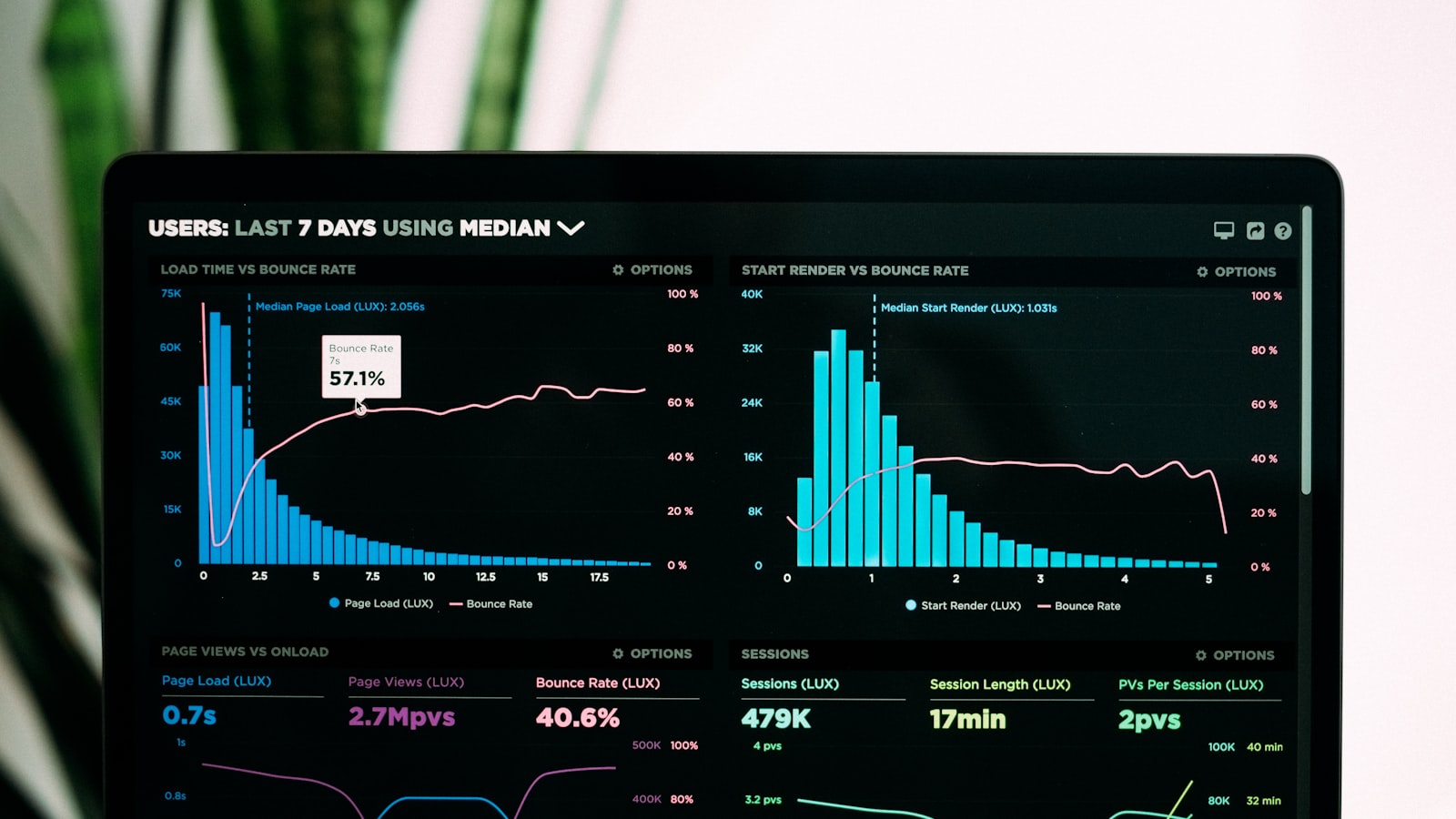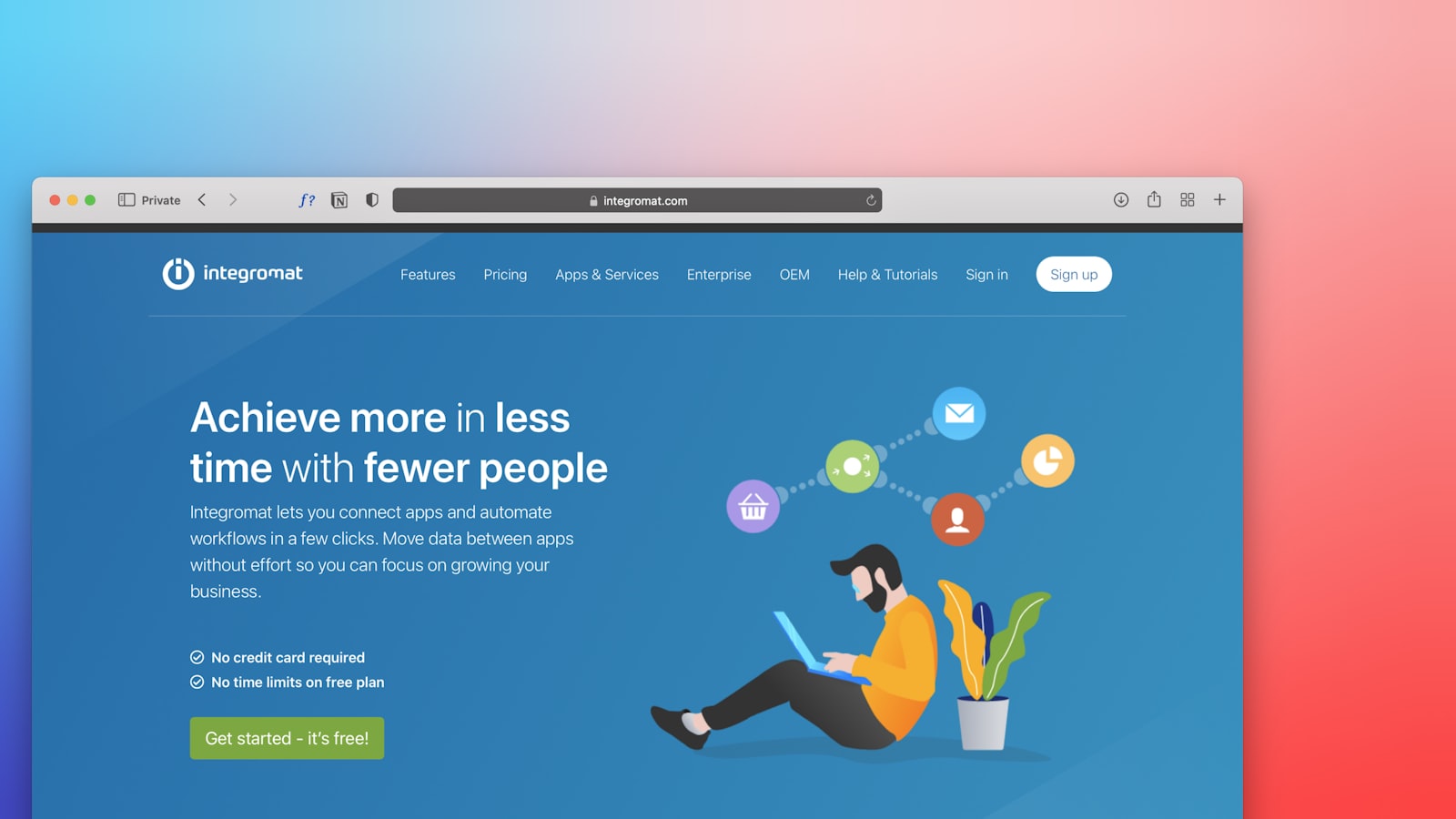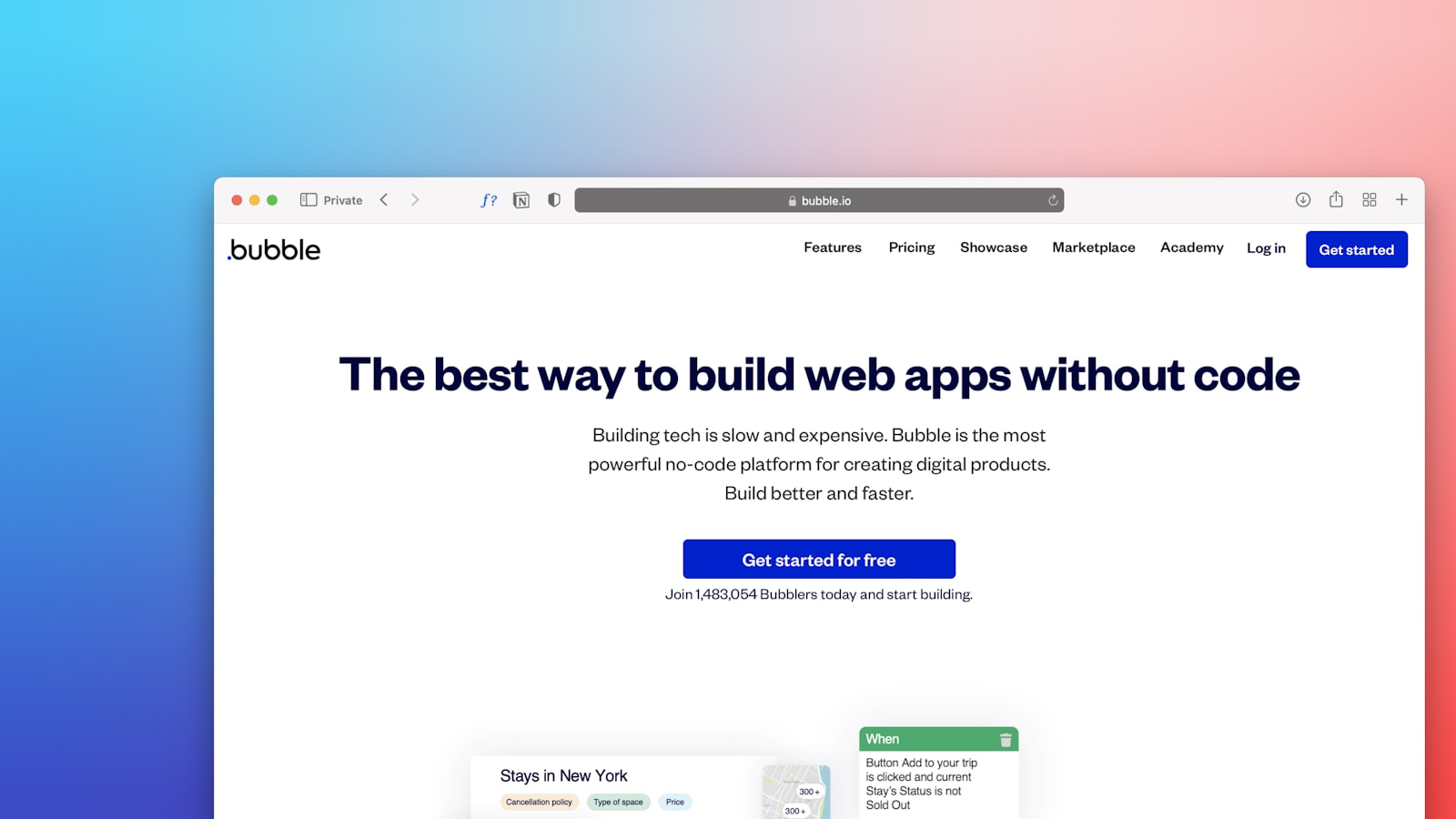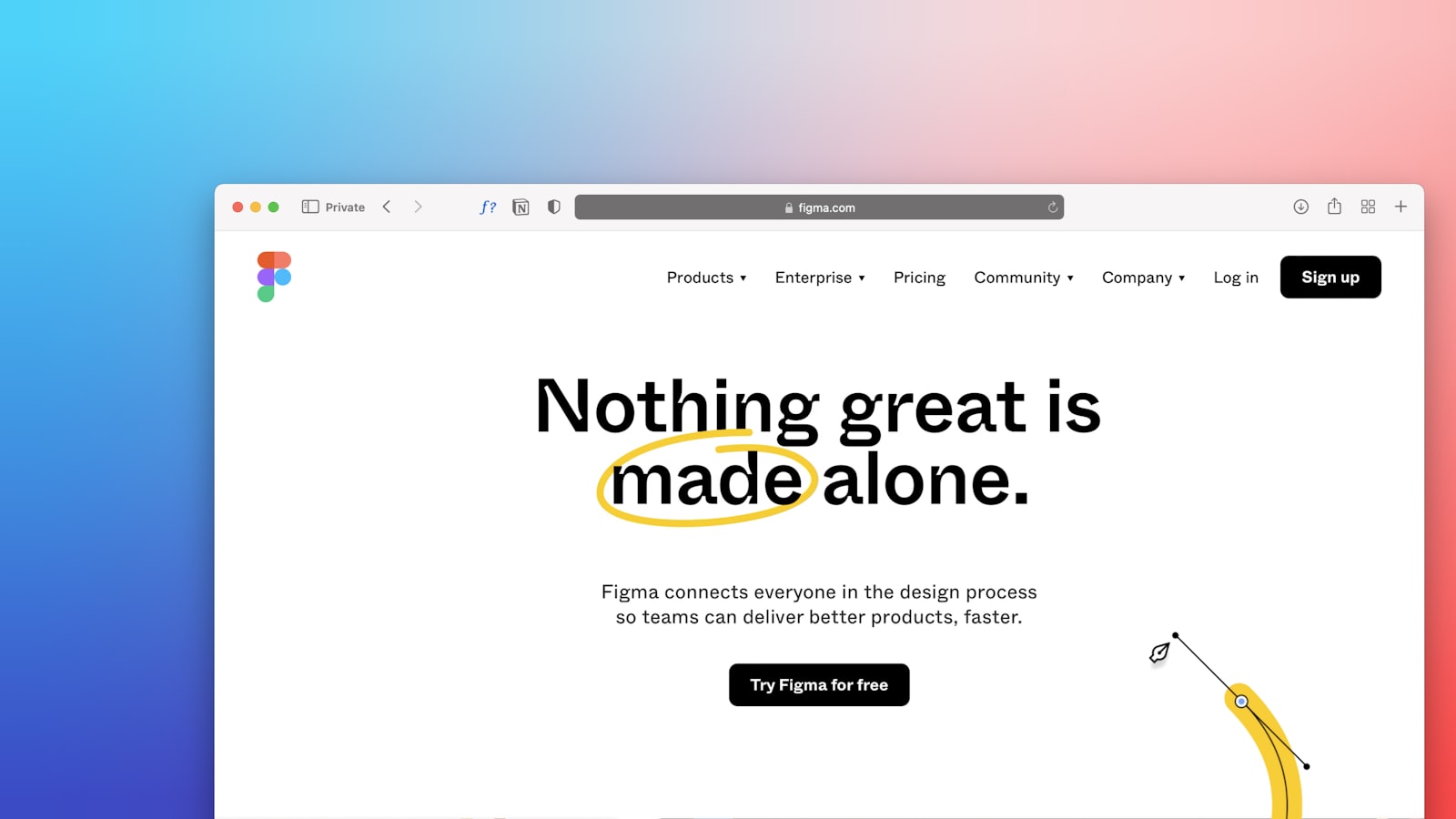How to Apply the GoPivot Framework to Your Business Strategy
How to Apply the GoPivot Framework to Your Business Strategy
How to Apply the GoPivot Framework to Your Business Strategy
Learn how to apply the GoPivot framework to your business strategy to enhance agility and drive growth. Discover actionable insights and practical tips.
Learn how to apply the GoPivot framework to your business strategy to enhance agility and drive growth. Discover actionable insights and practical tips.



Introduction to the GoPivot Framework
Ever feel like your business strategy is a bit like trying to steer a ship with no rudder? Enter the GoPivot Framework – your new best friend in navigating the choppy waters of business strategy. This isn't just another buzzword-filled guide; it's a practical, no-nonsense approach to making real, impactful changes in your organization. So, grab your compass and let's get started!
Overview of the GoPivot Framework
The GoPivot Framework is all about identifying pivot opportunities, designing and testing new initiatives, and scaling successful pivots for growth. Think of it as your secret weapon for staying agile and ahead of the competition. Whether you're a seasoned strategist or just starting out, this framework offers a structured yet flexible approach to transforming your business strategy.
Importance of Adapting the GoPivot Framework to Business Strategy
Why should you care about the GoPivot Framework? Simple: it helps you adapt and thrive in an ever-changing market. By integrating this framework into your business strategy, you'll be better equipped to spot opportunities, mitigate risks, and drive sustainable growth. Plus, who doesn't want to be the office hero who implemented the strategy that took the company to new heights?
In this guide, we'll walk you through:
Identifying pivot opportunities
Designing and testing new initiatives
Scaling successful pivots for growth
Ready to pivot like a pro? Let's dive into the nuts and bolts of the GoPivot Framework and revolutionize your business strategy!
Understanding the Core Components of GoPivot
Pay For Performance

Eliminating Inefficiencies in Employee Incentives
Many companies waste a significant portion of their incentive budgets on ineffective programs. Traditional employee incentives often fail to motivate the majority of the workforce, leading to inefficiencies and hidden costs. These include:
High platform fees
Additional incentives that don't drive engagement
Maintaining unhealthy behaviors among employees
By switching to a performance-based pay system, businesses can eliminate these inefficiencies and ensure that every dollar spent contributes to meaningful employee engagement and productivity.
Benefits of Performance-Based Pay
Performance-based pay aligns employee incentives with company goals, creating a win-win situation for both parties. Here are some key benefits:
Increased Motivation: Employees are more likely to put in extra effort when they know their performance directly impacts their pay.
Better Performance: When employees are rewarded for their achievements, they tend to perform better, boosting overall productivity.
Cost Efficiency: Companies can save money by eliminating unnecessary incentives and focusing on rewarding high performance.
Employee Retention: A fair and transparent pay-for-performance system can improve employee satisfaction and reduce turnover rates.
Implementing a performance-based pay system can transform your business strategy, making it more efficient and effective. By focusing on outcomes and rewarding high achievers, companies can drive better results and create a more motivated workforce.
Personalized Wellness Programs

Tailoring Exercise and Nutrition Plans
Let's face it, one-size-fits-all wellness programs are about as effective as a chocolate teapot. Personalized wellness programs, on the other hand, are designed to meet the unique needs of each employee. By tailoring exercise and nutrition plans, businesses can support their workforce in achieving optimal health and productivity.
Here's how you can tailor these plans:
Assess Individual Needs: Conduct health assessments to understand the specific needs and goals of each employee.
Customized Exercise Plans: Develop exercise routines that cater to different fitness levels and preferences.
Personalized Nutrition Plans: Create nutrition plans that consider dietary restrictions, preferences, and health goals.
By focusing on personalized wellness, companies can foster a healthier, more engaged workforce.
Utilizing FitIn Score™ for Individualized Goals
The FitIn Score™ is a game-changer when it comes to setting and achieving individualized wellness goals. This innovative tool helps employees track their progress and stay motivated.
Here's how the FitIn Score™ works:
Initial Assessment: Employees complete a health and fitness assessment to establish a baseline score.
Goal Setting: Based on the assessment, personalized goals are set for each employee.
Progress Tracking: Employees can monitor their progress through regular updates to their FitIn Score™.
Adjustments: Plans are adjusted as needed to ensure continuous improvement and engagement.
Using the FitIn Score™ not only helps employees stay on track but also provides valuable insights for employers to refine their wellness programs.
Implementing GoPivot in Your Business Strategy
Configurable Solutions for ROI Control

Adapting Programs to Changing ROI Goals
One of the standout features of the GoPivot framework is its flexibility in adapting to evolving ROI goals. Unlike traditional models, GoPivot's approach allows businesses to tweak their programs based on real-time data and shifting objectives. This ensures that your investment is always aligned with your current priorities.
Here’s how you can adapt your programs effectively:
Monitor Engagement: Regularly track employee participation and adjust incentives to maintain high levels of engagement.
Analyze Data: Use analytics to understand what’s working and what’s not. This helps in making informed decisions about where to allocate resources.
Adjust Incentives: Modify rewards based on performance metrics. This keeps the program dynamic and relevant to employees' needs.
Balancing Outcomes and Engagement
Balancing outcomes and engagement is crucial for the success of any business strategy. GoPivot makes this balancing act easier by providing tools that ensure both aspects are addressed effectively. Here are some strategies:
Set Clear Goals: Define what success looks like for your program. This could be improved health metrics, increased productivity, or higher employee satisfaction.
Engage Employees: Use point-based rewards to keep employees motivated. This not only drives engagement but also helps in achieving the set goals.
Feedback Loop: Create a system for regular feedback. This helps in understanding employee needs and making necessary adjustments to the program.
By implementing these strategies, you can ensure that your business not only meets its ROI goals but also keeps employees engaged and motivated.
Outcomes-Based Methodology
Science of Point-Based Rewards Programs
Understanding the science behind point-based rewards programs is essential for any business aiming to enhance employee motivation and performance. These programs leverage behavioral psychology principles to incentivize desired actions through a structured point system. By offering points for specific achievements, employees are encouraged to engage in behaviors that align with company goals.
For instance, a sales team might earn points for closing deals, attending training sessions, or achieving customer satisfaction targets. These points can then be redeemed for rewards, creating a tangible connection between performance and benefits.
Research shows that such systems can significantly boost engagement and productivity. The key is to ensure that the points are meaningful and the rewards are desirable. A well-designed program can transform a mundane task into a competitive and rewarding experience.
Aligning Points with Achievable Goals
Aligning points with achievable goals is crucial for the success of any point-based rewards program. Setting attainable targets ensures that employees remain motivated and do not become discouraged by unrealistic expectations. Here are some strategies to align points with achievable goals:
Define Clear Objectives: Clearly outline what actions or achievements will earn points. This could include meeting sales targets, completing projects on time, or participating in company initiatives.
Set Incremental Goals: Break down larger objectives into smaller, manageable tasks. This allows employees to see progress and stay motivated as they accumulate points.
Offer Varied Rewards: Provide a range of rewards that cater to different preferences. This ensures that all employees find something valuable to work towards.
Regularly Review and Adjust: Continuously assess the effectiveness of the program and make necessary adjustments. This could involve tweaking point values or introducing new rewards to keep the program fresh and engaging.
By aligning points with achievable goals, businesses can create a dynamic and motivating environment that drives performance and fosters a culture of continuous improvement.

Motivating Employees with Pivot Points
The Concept of Pivot Points
Pivot Points are a unique feature of the GoPivot Framework designed to enhance employee engagement and productivity. Think of them as a modern twist on the classic reward system. Instead of generic incentives, Pivot Points are tailored to individual performance and goals, making them highly effective in driving motivation.
How Pivot Points Drive Employee Engagement
Engagement is the secret sauce to a happy and productive workforce. Pivot Points achieve this by:
Personalization: Employees earn points based on their specific goals and achievements, making the rewards feel more personal and meaningful.
Transparency: The system is clear and straightforward, so employees understand exactly what they need to do to earn points.
Flexibility: Points can be redeemed for a variety of rewards, giving employees the freedom to choose what motivates them most.
Examples of Effective Pivot Point Strategies
Implementing Pivot Points effectively can transform your workplace. Here are a few strategies that have proven successful:
Monthly Performance Bonuses: Award points for meeting or exceeding monthly performance targets. This keeps employees focused and driven.
Wellness Challenges: Encourage healthy habits by offering points for participating in wellness programs, such as fitness challenges or nutrition plans.
Team Collaboration: Foster teamwork by giving points for collaborative projects. This not only motivates individuals but also strengthens team dynamics.
By integrating Pivot Points into your business strategy, you can create a more engaged and motivated workforce. For more insights on implementing effective strategies, check out our GoPivot Framework Strategy guide.

Introduction to the GoPivot Framework
Ever feel like your business strategy is a bit like trying to steer a ship with no rudder? Enter the GoPivot Framework – your new best friend in navigating the choppy waters of business strategy. This isn't just another buzzword-filled guide; it's a practical, no-nonsense approach to making real, impactful changes in your organization. So, grab your compass and let's get started!
Overview of the GoPivot Framework
The GoPivot Framework is all about identifying pivot opportunities, designing and testing new initiatives, and scaling successful pivots for growth. Think of it as your secret weapon for staying agile and ahead of the competition. Whether you're a seasoned strategist or just starting out, this framework offers a structured yet flexible approach to transforming your business strategy.
Importance of Adapting the GoPivot Framework to Business Strategy
Why should you care about the GoPivot Framework? Simple: it helps you adapt and thrive in an ever-changing market. By integrating this framework into your business strategy, you'll be better equipped to spot opportunities, mitigate risks, and drive sustainable growth. Plus, who doesn't want to be the office hero who implemented the strategy that took the company to new heights?
In this guide, we'll walk you through:
Identifying pivot opportunities
Designing and testing new initiatives
Scaling successful pivots for growth
Ready to pivot like a pro? Let's dive into the nuts and bolts of the GoPivot Framework and revolutionize your business strategy!
Understanding the Core Components of GoPivot
Pay For Performance

Eliminating Inefficiencies in Employee Incentives
Many companies waste a significant portion of their incentive budgets on ineffective programs. Traditional employee incentives often fail to motivate the majority of the workforce, leading to inefficiencies and hidden costs. These include:
High platform fees
Additional incentives that don't drive engagement
Maintaining unhealthy behaviors among employees
By switching to a performance-based pay system, businesses can eliminate these inefficiencies and ensure that every dollar spent contributes to meaningful employee engagement and productivity.
Benefits of Performance-Based Pay
Performance-based pay aligns employee incentives with company goals, creating a win-win situation for both parties. Here are some key benefits:
Increased Motivation: Employees are more likely to put in extra effort when they know their performance directly impacts their pay.
Better Performance: When employees are rewarded for their achievements, they tend to perform better, boosting overall productivity.
Cost Efficiency: Companies can save money by eliminating unnecessary incentives and focusing on rewarding high performance.
Employee Retention: A fair and transparent pay-for-performance system can improve employee satisfaction and reduce turnover rates.
Implementing a performance-based pay system can transform your business strategy, making it more efficient and effective. By focusing on outcomes and rewarding high achievers, companies can drive better results and create a more motivated workforce.
Personalized Wellness Programs

Tailoring Exercise and Nutrition Plans
Let's face it, one-size-fits-all wellness programs are about as effective as a chocolate teapot. Personalized wellness programs, on the other hand, are designed to meet the unique needs of each employee. By tailoring exercise and nutrition plans, businesses can support their workforce in achieving optimal health and productivity.
Here's how you can tailor these plans:
Assess Individual Needs: Conduct health assessments to understand the specific needs and goals of each employee.
Customized Exercise Plans: Develop exercise routines that cater to different fitness levels and preferences.
Personalized Nutrition Plans: Create nutrition plans that consider dietary restrictions, preferences, and health goals.
By focusing on personalized wellness, companies can foster a healthier, more engaged workforce.
Utilizing FitIn Score™ for Individualized Goals
The FitIn Score™ is a game-changer when it comes to setting and achieving individualized wellness goals. This innovative tool helps employees track their progress and stay motivated.
Here's how the FitIn Score™ works:
Initial Assessment: Employees complete a health and fitness assessment to establish a baseline score.
Goal Setting: Based on the assessment, personalized goals are set for each employee.
Progress Tracking: Employees can monitor their progress through regular updates to their FitIn Score™.
Adjustments: Plans are adjusted as needed to ensure continuous improvement and engagement.
Using the FitIn Score™ not only helps employees stay on track but also provides valuable insights for employers to refine their wellness programs.
Implementing GoPivot in Your Business Strategy
Configurable Solutions for ROI Control

Adapting Programs to Changing ROI Goals
One of the standout features of the GoPivot framework is its flexibility in adapting to evolving ROI goals. Unlike traditional models, GoPivot's approach allows businesses to tweak their programs based on real-time data and shifting objectives. This ensures that your investment is always aligned with your current priorities.
Here’s how you can adapt your programs effectively:
Monitor Engagement: Regularly track employee participation and adjust incentives to maintain high levels of engagement.
Analyze Data: Use analytics to understand what’s working and what’s not. This helps in making informed decisions about where to allocate resources.
Adjust Incentives: Modify rewards based on performance metrics. This keeps the program dynamic and relevant to employees' needs.
Balancing Outcomes and Engagement
Balancing outcomes and engagement is crucial for the success of any business strategy. GoPivot makes this balancing act easier by providing tools that ensure both aspects are addressed effectively. Here are some strategies:
Set Clear Goals: Define what success looks like for your program. This could be improved health metrics, increased productivity, or higher employee satisfaction.
Engage Employees: Use point-based rewards to keep employees motivated. This not only drives engagement but also helps in achieving the set goals.
Feedback Loop: Create a system for regular feedback. This helps in understanding employee needs and making necessary adjustments to the program.
By implementing these strategies, you can ensure that your business not only meets its ROI goals but also keeps employees engaged and motivated.
Outcomes-Based Methodology
Science of Point-Based Rewards Programs
Understanding the science behind point-based rewards programs is essential for any business aiming to enhance employee motivation and performance. These programs leverage behavioral psychology principles to incentivize desired actions through a structured point system. By offering points for specific achievements, employees are encouraged to engage in behaviors that align with company goals.
For instance, a sales team might earn points for closing deals, attending training sessions, or achieving customer satisfaction targets. These points can then be redeemed for rewards, creating a tangible connection between performance and benefits.
Research shows that such systems can significantly boost engagement and productivity. The key is to ensure that the points are meaningful and the rewards are desirable. A well-designed program can transform a mundane task into a competitive and rewarding experience.
Aligning Points with Achievable Goals
Aligning points with achievable goals is crucial for the success of any point-based rewards program. Setting attainable targets ensures that employees remain motivated and do not become discouraged by unrealistic expectations. Here are some strategies to align points with achievable goals:
Define Clear Objectives: Clearly outline what actions or achievements will earn points. This could include meeting sales targets, completing projects on time, or participating in company initiatives.
Set Incremental Goals: Break down larger objectives into smaller, manageable tasks. This allows employees to see progress and stay motivated as they accumulate points.
Offer Varied Rewards: Provide a range of rewards that cater to different preferences. This ensures that all employees find something valuable to work towards.
Regularly Review and Adjust: Continuously assess the effectiveness of the program and make necessary adjustments. This could involve tweaking point values or introducing new rewards to keep the program fresh and engaging.
By aligning points with achievable goals, businesses can create a dynamic and motivating environment that drives performance and fosters a culture of continuous improvement.

Motivating Employees with Pivot Points
The Concept of Pivot Points
Pivot Points are a unique feature of the GoPivot Framework designed to enhance employee engagement and productivity. Think of them as a modern twist on the classic reward system. Instead of generic incentives, Pivot Points are tailored to individual performance and goals, making them highly effective in driving motivation.
How Pivot Points Drive Employee Engagement
Engagement is the secret sauce to a happy and productive workforce. Pivot Points achieve this by:
Personalization: Employees earn points based on their specific goals and achievements, making the rewards feel more personal and meaningful.
Transparency: The system is clear and straightforward, so employees understand exactly what they need to do to earn points.
Flexibility: Points can be redeemed for a variety of rewards, giving employees the freedom to choose what motivates them most.
Examples of Effective Pivot Point Strategies
Implementing Pivot Points effectively can transform your workplace. Here are a few strategies that have proven successful:
Monthly Performance Bonuses: Award points for meeting or exceeding monthly performance targets. This keeps employees focused and driven.
Wellness Challenges: Encourage healthy habits by offering points for participating in wellness programs, such as fitness challenges or nutrition plans.
Team Collaboration: Foster teamwork by giving points for collaborative projects. This not only motivates individuals but also strengthens team dynamics.
By integrating Pivot Points into your business strategy, you can create a more engaged and motivated workforce. For more insights on implementing effective strategies, check out our GoPivot Framework Strategy guide.

Introduction to the GoPivot Framework
Ever feel like your business strategy is a bit like trying to steer a ship with no rudder? Enter the GoPivot Framework – your new best friend in navigating the choppy waters of business strategy. This isn't just another buzzword-filled guide; it's a practical, no-nonsense approach to making real, impactful changes in your organization. So, grab your compass and let's get started!
Overview of the GoPivot Framework
The GoPivot Framework is all about identifying pivot opportunities, designing and testing new initiatives, and scaling successful pivots for growth. Think of it as your secret weapon for staying agile and ahead of the competition. Whether you're a seasoned strategist or just starting out, this framework offers a structured yet flexible approach to transforming your business strategy.
Importance of Adapting the GoPivot Framework to Business Strategy
Why should you care about the GoPivot Framework? Simple: it helps you adapt and thrive in an ever-changing market. By integrating this framework into your business strategy, you'll be better equipped to spot opportunities, mitigate risks, and drive sustainable growth. Plus, who doesn't want to be the office hero who implemented the strategy that took the company to new heights?
In this guide, we'll walk you through:
Identifying pivot opportunities
Designing and testing new initiatives
Scaling successful pivots for growth
Ready to pivot like a pro? Let's dive into the nuts and bolts of the GoPivot Framework and revolutionize your business strategy!
Understanding the Core Components of GoPivot
Pay For Performance

Eliminating Inefficiencies in Employee Incentives
Many companies waste a significant portion of their incentive budgets on ineffective programs. Traditional employee incentives often fail to motivate the majority of the workforce, leading to inefficiencies and hidden costs. These include:
High platform fees
Additional incentives that don't drive engagement
Maintaining unhealthy behaviors among employees
By switching to a performance-based pay system, businesses can eliminate these inefficiencies and ensure that every dollar spent contributes to meaningful employee engagement and productivity.
Benefits of Performance-Based Pay
Performance-based pay aligns employee incentives with company goals, creating a win-win situation for both parties. Here are some key benefits:
Increased Motivation: Employees are more likely to put in extra effort when they know their performance directly impacts their pay.
Better Performance: When employees are rewarded for their achievements, they tend to perform better, boosting overall productivity.
Cost Efficiency: Companies can save money by eliminating unnecessary incentives and focusing on rewarding high performance.
Employee Retention: A fair and transparent pay-for-performance system can improve employee satisfaction and reduce turnover rates.
Implementing a performance-based pay system can transform your business strategy, making it more efficient and effective. By focusing on outcomes and rewarding high achievers, companies can drive better results and create a more motivated workforce.
Personalized Wellness Programs

Tailoring Exercise and Nutrition Plans
Let's face it, one-size-fits-all wellness programs are about as effective as a chocolate teapot. Personalized wellness programs, on the other hand, are designed to meet the unique needs of each employee. By tailoring exercise and nutrition plans, businesses can support their workforce in achieving optimal health and productivity.
Here's how you can tailor these plans:
Assess Individual Needs: Conduct health assessments to understand the specific needs and goals of each employee.
Customized Exercise Plans: Develop exercise routines that cater to different fitness levels and preferences.
Personalized Nutrition Plans: Create nutrition plans that consider dietary restrictions, preferences, and health goals.
By focusing on personalized wellness, companies can foster a healthier, more engaged workforce.
Utilizing FitIn Score™ for Individualized Goals
The FitIn Score™ is a game-changer when it comes to setting and achieving individualized wellness goals. This innovative tool helps employees track their progress and stay motivated.
Here's how the FitIn Score™ works:
Initial Assessment: Employees complete a health and fitness assessment to establish a baseline score.
Goal Setting: Based on the assessment, personalized goals are set for each employee.
Progress Tracking: Employees can monitor their progress through regular updates to their FitIn Score™.
Adjustments: Plans are adjusted as needed to ensure continuous improvement and engagement.
Using the FitIn Score™ not only helps employees stay on track but also provides valuable insights for employers to refine their wellness programs.
Implementing GoPivot in Your Business Strategy
Configurable Solutions for ROI Control

Adapting Programs to Changing ROI Goals
One of the standout features of the GoPivot framework is its flexibility in adapting to evolving ROI goals. Unlike traditional models, GoPivot's approach allows businesses to tweak their programs based on real-time data and shifting objectives. This ensures that your investment is always aligned with your current priorities.
Here’s how you can adapt your programs effectively:
Monitor Engagement: Regularly track employee participation and adjust incentives to maintain high levels of engagement.
Analyze Data: Use analytics to understand what’s working and what’s not. This helps in making informed decisions about where to allocate resources.
Adjust Incentives: Modify rewards based on performance metrics. This keeps the program dynamic and relevant to employees' needs.
Balancing Outcomes and Engagement
Balancing outcomes and engagement is crucial for the success of any business strategy. GoPivot makes this balancing act easier by providing tools that ensure both aspects are addressed effectively. Here are some strategies:
Set Clear Goals: Define what success looks like for your program. This could be improved health metrics, increased productivity, or higher employee satisfaction.
Engage Employees: Use point-based rewards to keep employees motivated. This not only drives engagement but also helps in achieving the set goals.
Feedback Loop: Create a system for regular feedback. This helps in understanding employee needs and making necessary adjustments to the program.
By implementing these strategies, you can ensure that your business not only meets its ROI goals but also keeps employees engaged and motivated.
Outcomes-Based Methodology
Science of Point-Based Rewards Programs
Understanding the science behind point-based rewards programs is essential for any business aiming to enhance employee motivation and performance. These programs leverage behavioral psychology principles to incentivize desired actions through a structured point system. By offering points for specific achievements, employees are encouraged to engage in behaviors that align with company goals.
For instance, a sales team might earn points for closing deals, attending training sessions, or achieving customer satisfaction targets. These points can then be redeemed for rewards, creating a tangible connection between performance and benefits.
Research shows that such systems can significantly boost engagement and productivity. The key is to ensure that the points are meaningful and the rewards are desirable. A well-designed program can transform a mundane task into a competitive and rewarding experience.
Aligning Points with Achievable Goals
Aligning points with achievable goals is crucial for the success of any point-based rewards program. Setting attainable targets ensures that employees remain motivated and do not become discouraged by unrealistic expectations. Here are some strategies to align points with achievable goals:
Define Clear Objectives: Clearly outline what actions or achievements will earn points. This could include meeting sales targets, completing projects on time, or participating in company initiatives.
Set Incremental Goals: Break down larger objectives into smaller, manageable tasks. This allows employees to see progress and stay motivated as they accumulate points.
Offer Varied Rewards: Provide a range of rewards that cater to different preferences. This ensures that all employees find something valuable to work towards.
Regularly Review and Adjust: Continuously assess the effectiveness of the program and make necessary adjustments. This could involve tweaking point values or introducing new rewards to keep the program fresh and engaging.
By aligning points with achievable goals, businesses can create a dynamic and motivating environment that drives performance and fosters a culture of continuous improvement.

Motivating Employees with Pivot Points
The Concept of Pivot Points
Pivot Points are a unique feature of the GoPivot Framework designed to enhance employee engagement and productivity. Think of them as a modern twist on the classic reward system. Instead of generic incentives, Pivot Points are tailored to individual performance and goals, making them highly effective in driving motivation.
How Pivot Points Drive Employee Engagement
Engagement is the secret sauce to a happy and productive workforce. Pivot Points achieve this by:
Personalization: Employees earn points based on their specific goals and achievements, making the rewards feel more personal and meaningful.
Transparency: The system is clear and straightforward, so employees understand exactly what they need to do to earn points.
Flexibility: Points can be redeemed for a variety of rewards, giving employees the freedom to choose what motivates them most.
Examples of Effective Pivot Point Strategies
Implementing Pivot Points effectively can transform your workplace. Here are a few strategies that have proven successful:
Monthly Performance Bonuses: Award points for meeting or exceeding monthly performance targets. This keeps employees focused and driven.
Wellness Challenges: Encourage healthy habits by offering points for participating in wellness programs, such as fitness challenges or nutrition plans.
Team Collaboration: Foster teamwork by giving points for collaborative projects. This not only motivates individuals but also strengthens team dynamics.
By integrating Pivot Points into your business strategy, you can create a more engaged and motivated workforce. For more insights on implementing effective strategies, check out our GoPivot Framework Strategy guide.

Need help with SEO?
Need help with SEO?
Need help with SEO?
Join our 5-day free course on how to use AI to get more traffic to your website!
Explode your organic traffic and generate red-hot leads without spending a fortune on ads
Claim the top spot on search rankings for the most lucrative keywords in your industry
Cement your position as the undisputed authority in your niche, fostering unshakable trust and loyalty
Skyrocket your conversion rates and revenue with irresistible, customer-centric content
Conquer untapped markets and expand your reach by seizing hidden keyword opportunities
Liberate your time and resources from tedious content tasks, so you can focus on scaling your business
Gain laser-sharp insights into your ideal customers' minds, enabling you to create products and content they can't resist
Harness the power of data-driven decision-making to optimize your marketing for maximum impact
Achieve unstoppable, long-term organic growth without being held hostage by algorithm updates or ad costs
Stay light-years ahead of the competition by leveraging cutting-edge AI to adapt to any market shift or customer trend
Explode your organic traffic and generate red-hot leads without spending a fortune on ads
Claim the top spot on search rankings for the most lucrative keywords in your industry
Cement your position as the undisputed authority in your niche, fostering unshakable trust and loyalty
Skyrocket your conversion rates and revenue with irresistible, customer-centric content
Conquer untapped markets and expand your reach by seizing hidden keyword opportunities
Liberate your time and resources from tedious content tasks, so you can focus on scaling your business
Gain laser-sharp insights into your ideal customers' minds, enabling you to create products and content they can't resist
Harness the power of data-driven decision-making to optimize your marketing for maximum impact
Achieve unstoppable, long-term organic growth without being held hostage by algorithm updates or ad costs
Stay light-years ahead of the competition by leveraging cutting-edge AI to adapt to any market shift or customer trend
Explode your organic traffic and generate red-hot leads without spending a fortune on ads
Claim the top spot on search rankings for the most lucrative keywords in your industry
Cement your position as the undisputed authority in your niche, fostering unshakable trust and loyalty
Skyrocket your conversion rates and revenue with irresistible, customer-centric content
Conquer untapped markets and expand your reach by seizing hidden keyword opportunities
Liberate your time and resources from tedious content tasks, so you can focus on scaling your business
Gain laser-sharp insights into your ideal customers' minds, enabling you to create products and content they can't resist
Harness the power of data-driven decision-making to optimize your marketing for maximum impact
Achieve unstoppable, long-term organic growth without being held hostage by algorithm updates or ad costs
Stay light-years ahead of the competition by leveraging cutting-edge AI to adapt to any market shift or customer trend


































































































































































































































































































































